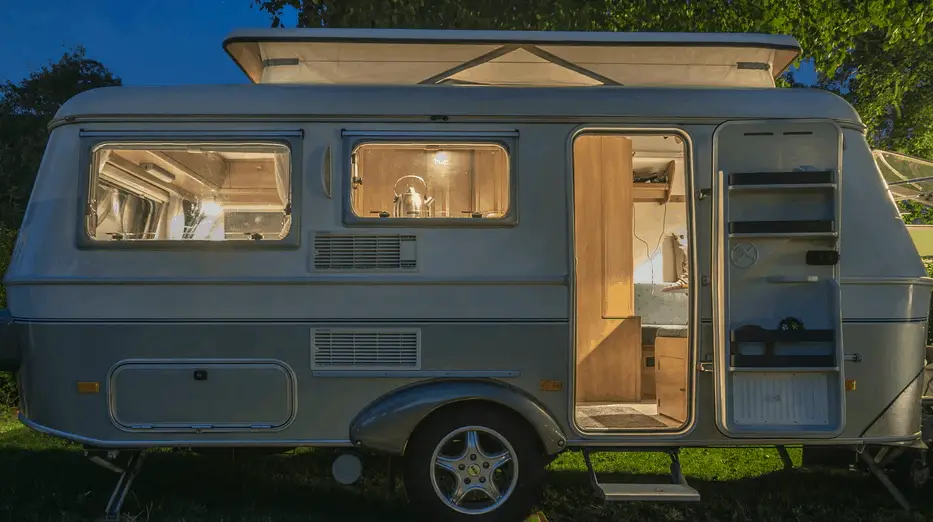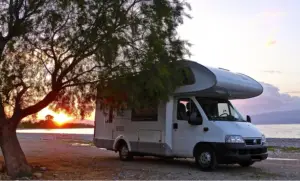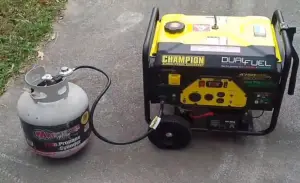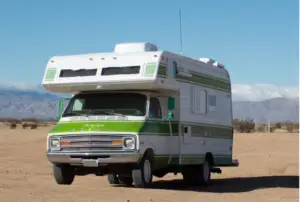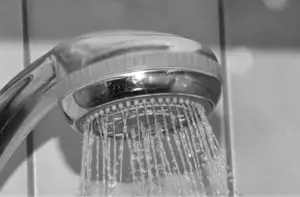RV’s have varying electrical and power needs. An RVs average watts consumption can vary on lot of factors. It depends on what appliances you have, how big your RV is and also depends on your individual habits.
Weather too plays a role in how much electricity you need in an RV. To be honest its no different then your home when you are connected to a campground shore power.
But, when you are boondocking or on the road, the power usage is different.You are limited and restricted with power usage without shore power connection.
And, that’s why you have this question about overall watts consumption for RV.
This question will help you get that right size generator for your RV. To understand the watts consumed by RV, all you have to do is look at the individual appliances and their consumption.
Average Watts Consumption in RV
The number of watts used by the RV depends on the total number of the watts used by the appliances. You can calculate the number of the watts being used by the appliances connected in RV.
The weather conditions can also have an impact on the consumption of electricity. When it’s too cold or too hot, the consumption of electricity can be higher and lower during fair weather.
The source of power that is being used can also contribute to the usage of electricity. The RV that is using the electric heat uses more energy than the one which uses propane gas.
Insulation can also lower the usage of electricity. If the RV is insulated it might not use a lot of electricity than the RV with minimum insulation.
Major watts consumption is by appliances such as refrigerator, air conditioner, microwave, TV and others. During winter, electric furnace or heater can also consume significant amount.
There are various appliances that might be consuming electricity from the RV. The items consume energy differently.
RV can be run on 30 amps or 50 amps. If you know the amps of your appliances might be useful in balancing the energy consumption thereby avoiding the tripping of a breaker. Amp is the measure of the electrical current.
The breaker might trip if the appliances draw more energy that overloads it. Most appliances have a detailed guideline in terms of the amps when it is running. You might divide the watts by volts to determine the amps of a product.
Some might need more energy to start and less energy when they are running while others uses insignificant energy. Below is a list of the appliances and their energy consumption rate.
| Appliance | Starting Watts | Running Watts |
| Air Conditioner | 1000 W – 3500 W | 300 W – 1700 W |
| Refrigerator | 500 W – 600 W | 150 W – 200 W |
| Microwave | 600 W – 1500 W | 600 W- 1500 W |
| Oven | 2800 W – 3000 W | 2800 W – 3000 W |
| Heater | 1200 W | 1200 W |
| Coffee Maker | 500 W – 600 W | 500 W – 600 W |
| Hair Dryer | 900 W – 1500 W | 900 W – 1500 W |
| Laptop | 220 W | 220 W |
| Television | 200 W – 300 W | 200 W – 300 W |
| Fan | 100 W | 40 W |
| Lights LED | 3 W- 30 W | 3 W – 30 W |
| Satellite Receiver | 200 W – 250 W | 200 W – 250 W |
| Electric Grill | 1500 W – 1800 W | 1500 W – 1800 W |
| DVD Player | 300 W | 300 W |
| Washer Dryer | 600 W – 1900 W | 600 W – 1900 W |
| Water Pump | 40 W-60 W | 40 W – 60 W |
Refrigerator Power Consumption
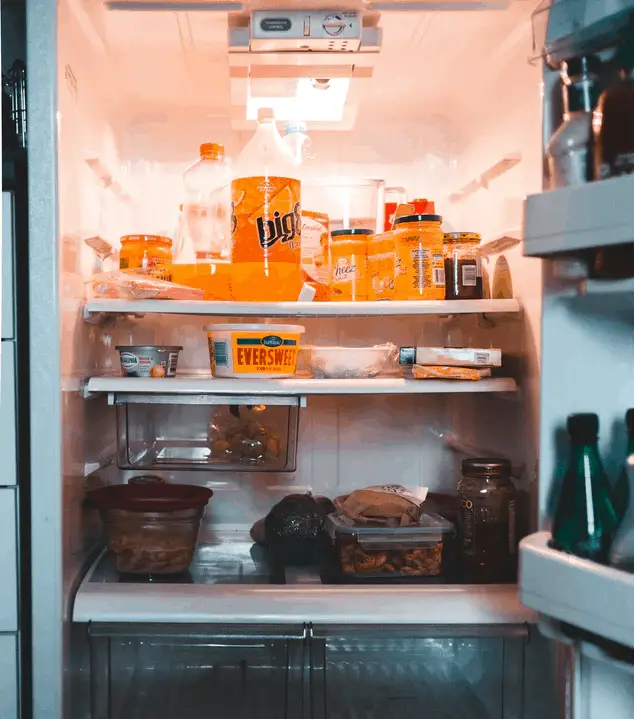
The RV can be run on direct current or alternating current. A RV refrigerator consumes energy differently. The fridge requires more energy when it is being started but when it is running it uses less energy.
Average watts consumption by a normal sized refrigerator in RV stands at around 500-600 watts for starting. While running, the watts consumption is lower at 150-200 watts.
The size of a fridge also has an impact when it comes to the consumption of power. An average fridge can start on 7 to 8 amps and change to 2 to 4 amps when it is running.
When the fridge has developed some ice, the running amps will be even lower than 2 amps. While defrosting the amps required are 1 to 1.2 amps. When the evaporator is the only things running, expect it to draw less at around 0.2 amps.
There are other factors that might affect the energy being used by the fridge. For instance, the older fridge may consume more power compared to a newer fridge.
The fridge consumes more power as it ages. The amps consumed by a fridge also depend on the mode of supply.
Energy consumption by refrigerator is much related to the brand also. More popular brands are popular because of their efficiency and other value. Dometic and Narcold are popular for RV refrigerators.
RV Air conditioner Watts Consumption
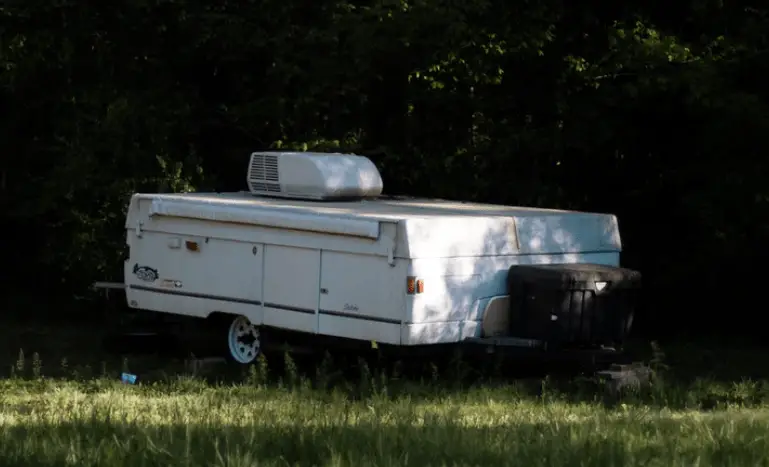
AC is by far the one appliance that will consume more watts over a period of time. Their consumption for starting as well as running is higher. And you will be running it for longer duration.
On an average a camper roof top ac needs around 1900-3500 watts for starting. For running, the ac consumes around 600 to 1200 watts.
The watts depends on the size of the RV. A 15000 BTU ac will need much higher power as compared to 6000 BTU AC. An air conditioner in your RV will be the deciding factor for the size of the generator you need.
In Most standard size RVs you will need a 13500 BTU or so Air conditioner. Bigger the RV, higher is the BTU that you will need.
Watts required by different Air conditioner sizes
Air conditioner is the one that would have longer run times.And since, at the same time it will be consuming power, its wise to know more about ac consumption.
Remember the difference in starting and running watts. Unlike refrigerator where the running watts are very less, its not the case with Air conditioners.
Refrigerators have the highest running time but because their running watts are less, its an less important factor. AC’s have high running watts and therefore it impacts your overall consumption and cost.
Lets have a look at avearge watts consumed by different BTU sizes.
- 5000 BTU Air conditioner consumes around 300 to 450 watts for running and 1100 watts for starting.
- 7000 BTU Air conditioner consumes around 500 to 650 watts for running and 1600 to 1800 watts for starting.
- 10,000 BTU Air conditioner consumes around 600 to 750 watts for running and 1900 to 2100 watts for starting.
- 13,500 BTU Air conditioner consumes around 1000 to 1300 watts for running and 2700 to 2900 watts for starting.
- 15,000 BTU Air conditioner consumes around 1200 to 1700 watts for running and 3200 to 3500 watts for starting.
Consumption by Other Appliances
Apart from refrigerator and air conditioner there will be other appliances that will also consume. Most of these appliances will not run for longer but their consumption while using can be higher. You, therefore need to plan on the size of the generator considering this appliances as well.
RV Furnace
On average, RV furnace uses 1200 watts. If the RV has a good battery, the furnace might run without being connected to the electricity.
Furnace might not be connected when you are out of the RV. At night, the furnace might be turned off, this limits the energy consumption of a furnace.
A furnace must be serviced at least once a year to improve its efficiency. With propane furnaces you might not need much power.
RV Microwave
A microwave can be used for a few minutes. A microwave with a cooking capacity of 600 to 1000 watts might use 1100 to 1500 watts. Expensive microwaves might be efficient and use electricity economically.
RV Oven
RV Oven can use average energy of 3000 watts. The energy consumption can depend on the hours used to cook. The oven model also contributes to energy consumption.
RV hairdryer
A hairdryer might consume around 900 to 1500 watts. A hairdryer has a larger motor and might need more watts when starting.
TV
The television energy consumption depends on the size, colour and model. A big television consumes more power than a smaller one. Any television set that is more than 30 inches may use around 200 to 300 watts.
RV water heater
Water heater consumption depends on the capacity of the water container. A water heater with 6 gallons might use 1440 watts.
Lights
Lights don’t consume a lot of energy; however, it is advisable to switch them off when they are not in use. Lights consume around 12 to 20 watts.
RV water pump
Water pumps for the toilet, sink and shower energy consumption might average 50 watts.
Washer or a Dryer
A washer requires more energy when starting than when running. A washer might use 600 to 1900 watts
Energy Sources and Portable Generator Size
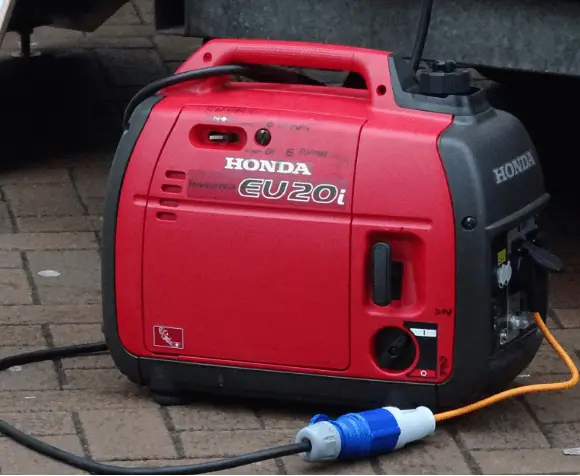
At campground you will have the shore power at your disposal but while boondocking or dry camping generator will provide the power.
DC battery can run basic minor appliances like lights, TV or furnace but other bigger appliances do need good generator.
Solar panels can also be used to charge the battery in your RV. But, for running bigger appliances generator is the way in absence of shore power.
Some appliances use more energy and you have to avoid overloading the generator. Calculate your appliance usage so that you avoid overloading the power generator.
Read : Solar Vs Portable Generator for RV
When plugging the appliances, plug them one by one or in small groups to avoid tripping the breaker or destroying the electrical system. You should know the appliance energy consumption so that you plug them accordingly.
The size or watts of the generator you need in RV will depend on all the watts consumed by appliances. The dominating appliance in most cases is the air conditioner. Bigger the AC, higher will be the watts rating of generator.
You also need to look closely at how many appliances will be running simultaneously. Also, some appliances have higher watts requirement for starting than running.
AC Size : With standard usage of running an 13,500 BTU AC and other basic appliances you should be fine with 3000 to 4000 watts generator. Mostly, it is completely upto individuals and their usage.
Weather Impact : Also, as we saw weather too can have effect on how much your consumption is. Like, in winters your consumption may shoot up. So, a good hard look at your watts consumption throughout should help you decide the watts for generator.
Will 2000 watts generator run the AC?
Yes, 2000 watts generator can run an RV AC but it wont be of higher BTU rating. To run a 13,500 BTU you will definitely need 3000 watts or more. On average a 13,500 BTU takes around 2800 watts for starting and close to 1800 watts for running.
Read : Your RV Generator Buying Guide
Also, it wont be only AC that will be running, right? You need to consider other appliances as well. It wont be logical to have a 13,500 or 15,000 BTU AC and get a 2000 watts generator for your RV.
What Size Generator for a 30-amp /50 amps RV
If the power outlet is 120 watts and the RV is 30 amp, you may need around 3600 watts generator. To get the size of the generator, multiply the RV amp with the power outlet.
To calculate the average needs, you may add the amps required by each appliance and multiply by 120. For instance, to power an oven that requires 26 amps you might need a 3120 watts generator before plus 20 per cent to avail room for other small appliances.
Similarly if the RV is 50 amps you will need at least a 4000 watts generator. Having said this it is obviously dependent on individual usage in the RV.
Do I need a battery as well?
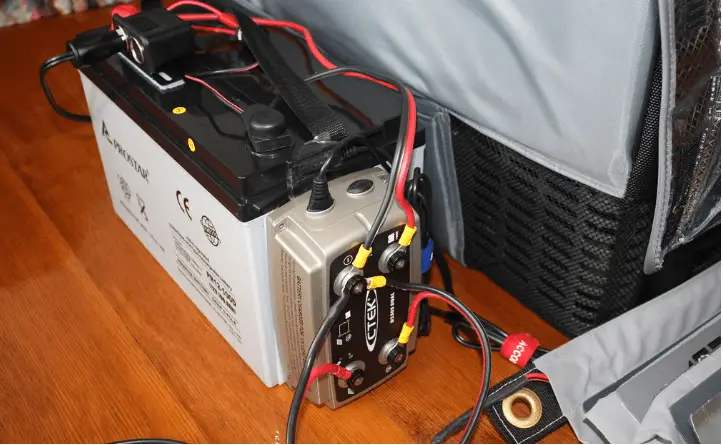
The RV can work using a converter, and a battery might not be needed. However, it is necessary to have a power backup to stay online when there is a power cut.
There are different types of batteries. Most RVs uses lead-acid batteries. An RV battery has a 120 volts alternating current and 12 volts direct current.
The 120 volts is more powerful and can be used to power big appliances such as refrigerators, air conditioning, microwave, washer and many others.
Read : How long can a refrigerator run on DC battery
The 12 volts system can be used to power small appliances such as interior lights, overhead fans, and more. The small battery can easily run without a generator. The big battery means more amps or power. Batteries are also sold in group sizes.
An RV can be powered by more than one battery. For instance, a 12 volt 24 group battery might give a 70 to 85 amp hour. If the two batteries of 12 volts 24 group are wired together they might give 140 to 170 amp hour.
Wiring batteries in series can be used to produce more power that can be stored and used off-grid or when there is a power cut.
Do campground charge for electricity
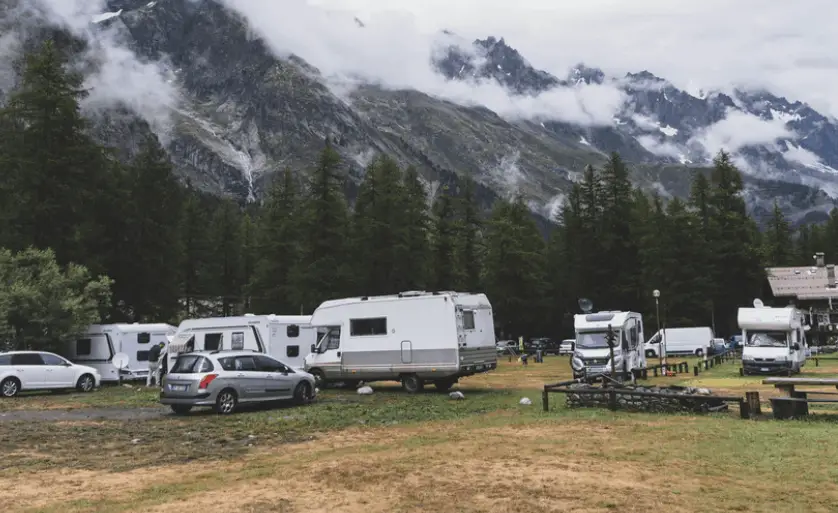
If you are camping at a campground for long term then there is good chance that they will charge your for it.Most overnight stay spots however will not charge it.
So to answer this question, its both yes and no. If you are worried about the charges, the best thing is to obviously check before-hand and get the rates clarified even before you start camping.
Read : What amenities do rv park have
For one time or night stay you should be okay. If you have good generator and want to use it then go ahead. But here again do check with campground as some of them do not allow generators because of the noise it makes. Pro tip- get a generator that makes less noise.
Saving on energy/watts in RV
When you are camping using the RV, you must find ways of saving energy and to lower costs. There are various tactics that you might employ to save energy.
- Heating water for bathing and using a furnace might take up more energy. Using alternative ways of heating might save energy.
- You might use fire to heat water and for cooking. Using fire might save the energy that going to be consumed by appliances such as oven, cooker, and others.
- When you are camping in winter, you should avoid parking the RV under the tree shades. Parking under the shades might make it difficult to warm the RV and you might end up using a lot of stored energy. To avoid this, park in an open space and make sure that the RV is exposed to sunshine so that it becomes warmer. The furnace is one of the applies that uses a lot of energy. Finding an alternative to heat up the RV might save energy.
- Insulate the RV to maintain consistent heat inside. You might invest in blankets to shield off colds.
- Covering vents might also be helpful in keeping cold weather at bay. Skirting the RV might be helpful in preventing the flow of air underneath the RV which might make the interior colder. The faulty windows must be repaired to avoid the flow of cold air inside the RV.
- You can use the gadgets wisely. Avoid powering unnecessary gadgets. Powering useless gadgets might waste energy. You might invest in alternative ways of powering other small gadgets such as mobile phones. Using a solar light might also be helpful in saving energy.
- Take advantage of green fuels. The batteries can be charged using solar panels instead of using a generator that might also need fuel.
- Appliances that are not being used must be switched off. Switching off an inverter might also save energy. An inverter can consume energy even if the appliances are turned off. The fridge can be turned off when you are driving to save electricity. A fridge can remain cool for some hours while you are driving.
- Be conscious when you are using the energy. Save as much as you can. Take advantage of natural source of energy such as wood, wind and solar.
In Conclusion
Watts consumed by AC can be reduced by keeping it properly maintained. Keeping the RV properly insulated can help in avoiding the heat loss during winter and cold air loss during summer. So, both the times keep the rv properly insulated if you are using AC or heater.
Getting the right size generator will always help and next time when you go RV camping you wont face the power shortage. Getting right Air conditioner and of right brand is also important.

